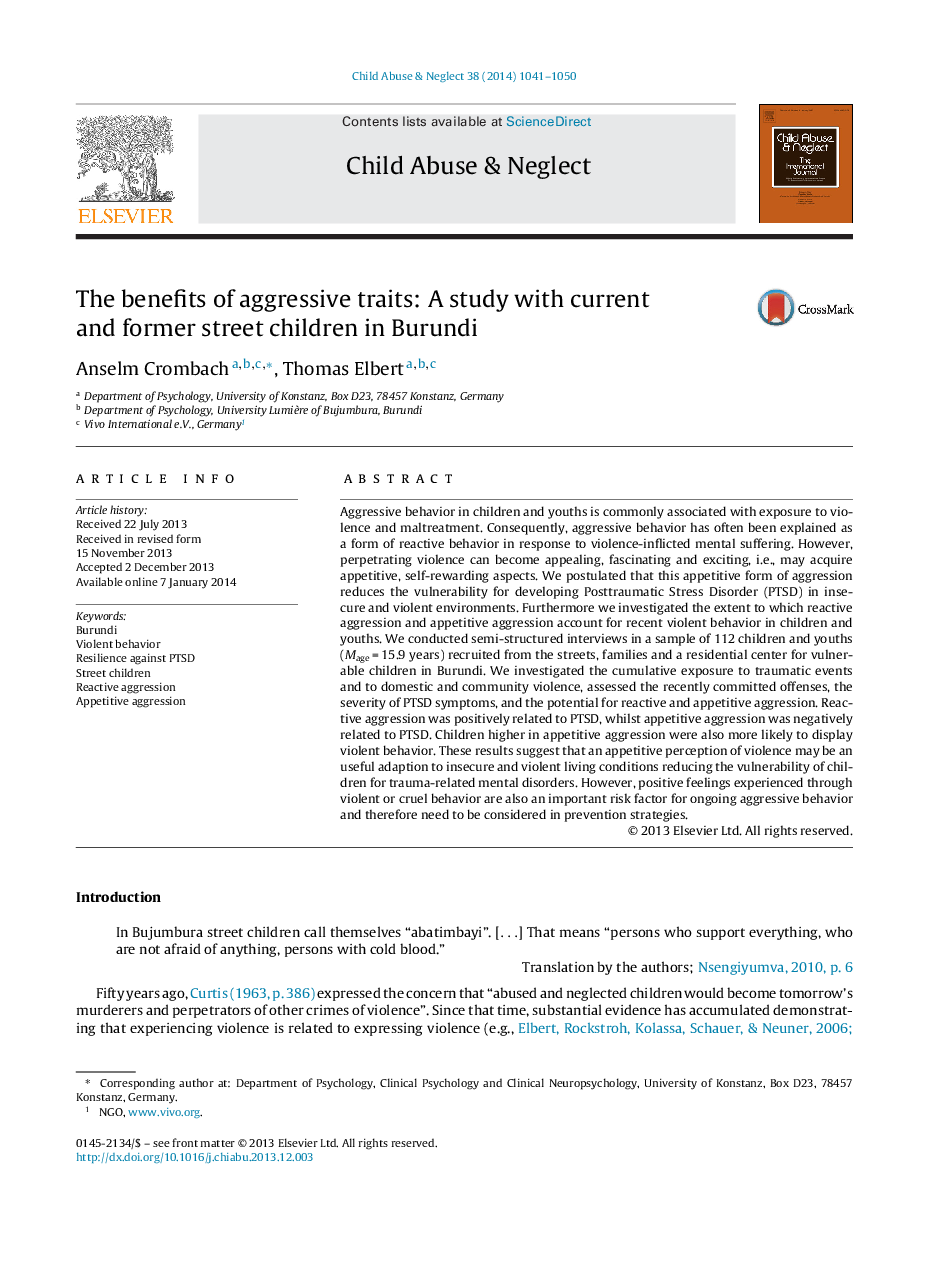| کد مقاله | کد نشریه | سال انتشار | مقاله انگلیسی | نسخه تمام متن |
|---|---|---|---|---|
| 344856 | 617459 | 2014 | 10 صفحه PDF | دانلود رایگان |
Aggressive behavior in children and youths is commonly associated with exposure to violence and maltreatment. Consequently, aggressive behavior has often been explained as a form of reactive behavior in response to violence-inflicted mental suffering. However, perpetrating violence can become appealing, fascinating and exciting, i.e., may acquire appetitive, self-rewarding aspects. We postulated that this appetitive form of aggression reduces the vulnerability for developing Posttraumatic Stress Disorder (PTSD) in insecure and violent environments. Furthermore we investigated the extent to which reactive aggression and appetitive aggression account for recent violent behavior in children and youths. We conducted semi-structured interviews in a sample of 112 children and youths (Mage = 15.9 years) recruited from the streets, families and a residential center for vulnerable children in Burundi. We investigated the cumulative exposure to traumatic events and to domestic and community violence, assessed the recently committed offenses, the severity of PTSD symptoms, and the potential for reactive and appetitive aggression. Reactive aggression was positively related to PTSD, whilst appetitive aggression was negatively related to PTSD. Children higher in appetitive aggression were also more likely to display violent behavior. These results suggest that an appetitive perception of violence may be an useful adaption to insecure and violent living conditions reducing the vulnerability of children for trauma-related mental disorders. However, positive feelings experienced through violent or cruel behavior are also an important risk factor for ongoing aggressive behavior and therefore need to be considered in prevention strategies.
Journal: Child Abuse & Neglect - Volume 38, Issue 6, June 2014, Pages 1041–1050
